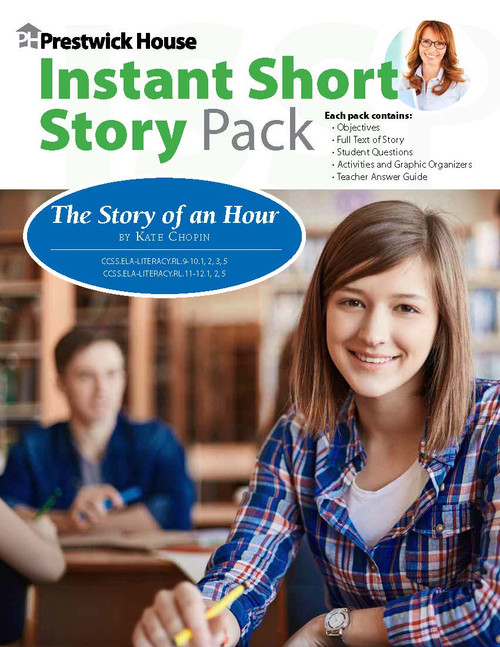Product Overview
Instant Resources for Home by Anton Chekhov!
Whether you're looking for a short story to pair with the novel you're teaching, or you need a 2- to 3-day sub plan to use with the stories in your textbooks, Prestwick House Instant Short Story Packs go beyond basic comprehension to help students learn how to analyze literature.
Each downloadable pack addresses key skills through 5-10 standards-based analysis questions by guiding students through a series of scaffolding graphic organizers and in-class activities.
This Instant Short Story Pack for Home by Anton Chekhov includes:
- Scaffolding graphic organizers and in-class activities
- Standards-based objectives
- Introduction and pre-reading notes
- Complete short story text
- Rigorous analysis questions
- Detailed teacher's answer guide
About Home
Like so many other short stories, Anton Chekhov’s “Home” is deceptive. Its simplicity can lead the reader into believing that this is merely a small slice-of-life tale, but “Home” is not straightforward in its subject matter and message, either.
Clearly, on the surface, the story is about a father struggling to determine how best to discipline his young son for what the man considers a minor infraction. This surface story contains humor: the father’s internal vacillation in which he criticizes every attempt he makes at connecting with his son and the son’s responses that reflect a typical child’s inability to understand an adult’s concern or to maintain focus on one topic for more than a few seconds. The surface story also contains a humorous bit of irony in that the father who cannot satisfactorily discipline his son is also a prosecutor for the state.
The father’s dilemma, however, is merely the surface, the vehicle through which Chekhov explores more abstract issues like the nature of truth. As both a realist and a modernist, Chekhov disapproved of unnecessary embellishment. Remember this as you consider how the father finally convinces the son never to smoke again and how the father accepts his ultimate success.
Certainly Chekhov, the storyteller, wants his reader to smile at the poor father’s attempts and at the son’s delightful childishness. But Chekhov, the artist, wants his reader to think about something else as well.












